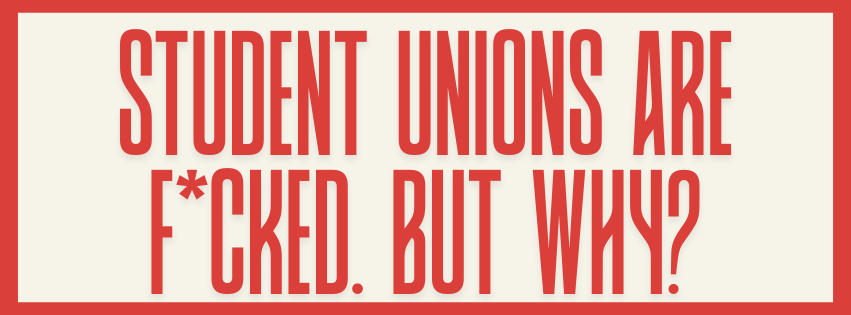
Student unions have not always been bastions of political immobility and service provision. They have existed for as long as universities have, and have a rich history of political mobilisation here in Aotearoa New Zealand. From the protests against compulsory military training in the 1910s, to the occupations in the 60s and 70s, to the resistance against the Springbok tour in 1981, to the rolling occupations of 1996, and to the resistance against the 2011 Freedom of Association Amendment Bill.
So what happened?
Before 2012, student unions were funded through membership fees, which all students were expected to pay. These fees allowed for student unions such as VUWSA to provide services such as free bread twice a week, management and funding of clubs and societies, and financing the construction of buildings such as the Hub, and arguably most importantly, independent funding for student organising and political lobbying.
In 2012, the Freedom of Association Amendment Bill was passed into law. Mandating that student unions could no longer expect universal membership. In practice, this meant that a new method of funding would need to be sought. Student associations entered into agreements with their universities, which would then become their primary funder. If you’d like to read VUWSA’s agreement with VUW, you can read it here.
This power dynamic, which still exists today, creates a relationship between student unions and their universities which does not allow for genuine political organising. KPIs have been set to measure the productivity of student unions, and very little funding is received to finance political lobbying or organising. The New Zealand Union of Students’ Associations (NZUSA), for example, had its funding cut by more than half after 2012, and as a result became defunct in 2024.
We have lost our ability to properly organise independently from universities, for fear of defunding, as witnessed last year when Massey University defunded its students’ association. Read more here.
What is needed to restore the power of student unions and, by extension, students themselves is not solely a return to mass organising, but a principled and targeted campaign to restore the financial independence of student unions.
This will be, if elected, a primary campaign I will bring into the 2026 general election.
If you’d like to read a slightly longer history of the impacts of voluntary student membership, you can check out my Substack article here